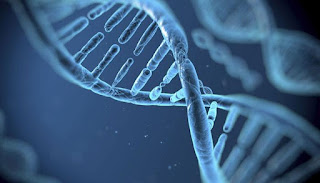MOLECULAR EDITING TOOLS WILL SOON END GENETIC DISEASES
Prof Dr,DRAM,HIV /AIDS,HEPATITIS ,SEX DISEASES & WEAKNESS expert,New Delhi,India, +917838059592
Scientists from the US have unveiled two new molecular editing tools designed to take care of the mutations that are behind majority of genetic diseases striking humans and possibly offer a disease-free world to human beings very soon.These tools might also be able to fix mutations of diseases which have no treatment and are deadly but not common.
Researchers from Harvard University, Broad Institute of MIT and Harvard offer a highly precise way to fix single-letter mistakes in genes, which are stretches of deoxyribonucleic acid or DNA.Another research focuses on editing ribonucleic acid or RNA, which carries the genetic instructions to make proteins, without altering DNA.
Both techniques combine together to build the game-changing CRISPR-Cas9 gene editing tool, which is a type of molecular scissor for trimming unwanted parts of the human genome to replace with new stretches of DNA.The genome consists of six billion DNA letters, or chemical bases.Unlike CRISPR, which causes breaks in DNA, base editing chemically corrects single-letter errors in DNA.
"CRISPR is like scissors, and base editors are like pencils," one of the experts said in a statement.Base editing tinkers with DNA's four chemical bases, adenine (A), cytosine (C), guanine (G) and thymine (T).It takes two bases to form base pairs which make up rungs in the spiral DNA ladder, and they follow specific rules - C pairs with G, and T pairs with A.
Single-letter mistakes, called point mutations, can give rise to genetic diseases.The researchers described a base editor that could change CG base pairs into AT pairs.In the second study, developer of CRISPR-Cas9 technology, created a new version of CRISPR that can edit RNA, which could help scientists make precise changes in cells at different points in development.
One of the experts said the RNA editing system, called REPAIR, can "fix mutations without tampering with the genome." However, the changes are not permanent because RNA degrades over time.Both editing systems offer the chance to correct specific disease mutations, either in DNA or messenger RNA.
But neither is ready for human trials yet.
- Kidney stones universally present hazard in north india,dillution by water prevent it
- Steroid and placebo effect equally for mild persisting asthma with low sputum eosinophils
- Government wants to fix public healthcare staff shortages with ayush docs: will it work?
- Plea in hc for payment of salaries of edmc, north mcd teachers and doctors
- 7 indian pharma companies named in us lawsuit over inflating generic drug prices
- Woman in up dies after explosion in her mouth during treatment,what is diagnosis?
- Woman in up dies after explosion in her mouth during treatment,what is diagnosis?
- Woman in up dies after explosion in her mouth during treatment,what is diagnosis?
- Air pollution ! mothers organising rally in london,anaesthetist choosing gas,will india follow?
- Cardiac arrest is always not sudden as understood -a study


 Comments (
Comments ( Category (
Category ( Views (
Views (